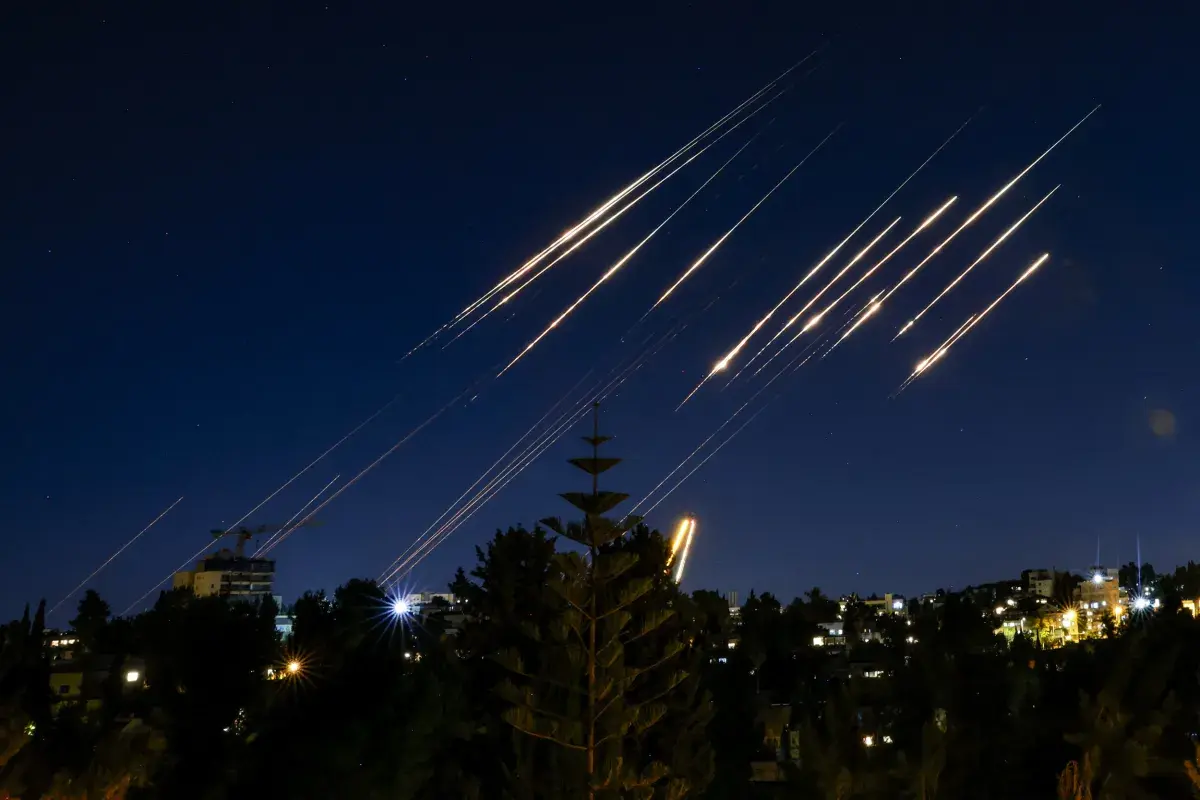Copyright Newsweek

Iran is accelerating its missile production with the stated goal of being able to fire 2,000 missiles at once in any future confrontation with Israel, aiming to overwhelm the country’s advanced defense systems, according to a report by The New York Times. The ambition marks a sharp escalation from June's 12-day war, when Iran launched roughly 500 missiles in retaliation for Israeli strikes on its critical infrastructure, military bases and nuclear facilities. Officials have reportedly said missile factories are operating around the clock to achieve this larger-scale capability. Newsweek has contacted Iran and Israel's Foreign Ministries for comment. Why It Matters Iran’s expanding missile program underscores the growing volatility in the Middle East. If Tehran reaches its target capacity, Israel’s multi-layered missile defenses could face unprecedented pressure. The buildup occurs amid a tense stalemate over Iran’s nuclear program and President Donald Trump’s “maximum pressure” strategy. Earlier this year, Israel's surprise attack on Iran sparked a 12-day conflict that concluded with U.S. strikes on Iranian nuclear sites and a U.S.-brokered ceasefire. While the war temporarily paused hostilities, it left both sides poised for renewed confrontation. Tehran’s accelerated missile production and ongoing nuclear activity suggest that any future clash could exceed the scale of the previous exchange, raising the risk of rapid escalation across the region. What to Know On Sunday, The New York Times reported that Iran has shifted toward mass-strike readiness, with missile factories reportedly operating 24 hours a day to reach the explicit goal of being able to launch 2,000 missiles simultaneously. Ali Vaez, director of the Iran Project at the International Crisis Group, told the NYT that Tehran hopes to “overwhelm Israeli defenses” in a future confrontation, rather than repeating the more limited response seen in June. Regional Isolation This push comes amid a broader context of regional isolation and strategic recalibration. According to the report, Iran is more isolated from the West than it has been in decades. Competing regional Arab powers, including Saudi Arabia, Egypt and the United Arab Emirates have increased influence in Washington and with Trump, leveraging both economic ties and cooperation on regional conflicts, including attempts to mediate the Gaza war. Syria’s new president is set to visit Washington seeking U.S. support; under the previous Assad government, Syria had been a key Iranian strategic ally. An erosion of influence in key regional capitals appears to be reinforcing Tehran’s focus on self-reliance, missile buildup, and nuclear expansion as a hedge against reduced diplomatic leverage. Israeli Perspective Israel’s perspective reflects the urgency these developments create. Israeli officials view Iran’s nuclear and missile advances as existential threats. Although Israel’s June offensive was halted under U.S. pressure, officials reportedly consider the work unfinished and see no barrier to resuming strikes if Iran continues advancing its nuclear and missile programs. Nuclear Inspections In related news, on Monday Iran’s foreign ministry confirmed that U.N. inspectors had visited its nuclear sites, a week after the International Atomic Energy Agency (IAEA) urged Tehran to “seriously improve” cooperation to avoid escalating tensions with the West. The agency has conducted roughly a dozen inspections since June but reported last week that it had been denied access to facilities including Fordow, Natanz, and Isfahan, all of which were targeted by U.S. strikes. “As long as we are NPT (Non-Proliferation Treaty) members, we will abide by our commitments. Inspectors visited several facilities, including the Tehran Research Reactor,” said Iran's foreign ministry spokesperson, without specifying the other sites, underscoring Iran’s cautious approach to international oversight. What People Are Saying Director of the Iran Project at the International Crisis Group Ali Vaez told the NYT: "If there is another war, they hope to fire 2,000 [missiles] at once to overwhelm Israeli defenses, not 500 over 12 days as they did in June.” Iran's Foreign MInistry Spokesperson Esmaeil Baqaei said on Monday: “Our consistent expectation from the IAEA and its director-general is to act strictly within their technical mandate and avoid speculation. We continue to urge the agency to base its assessments on professional and verifiable facts rather than political assumptions.” What Happens Next The current lull in hostilities may be more strategic than permanent, offering a brief window for both sides to reassess and recalibrate. Future confrontations could unfold quickly, testing regional alliances and the patience of global powers, including Washington, where Trump’s approach to negotiations with Tehran could prove decisive. How Iran and Israel choose to maneuver in this tense environment will likely shape not only the immediate security landscape but also the broader trajectory of Middle East diplomacy for years to come.



